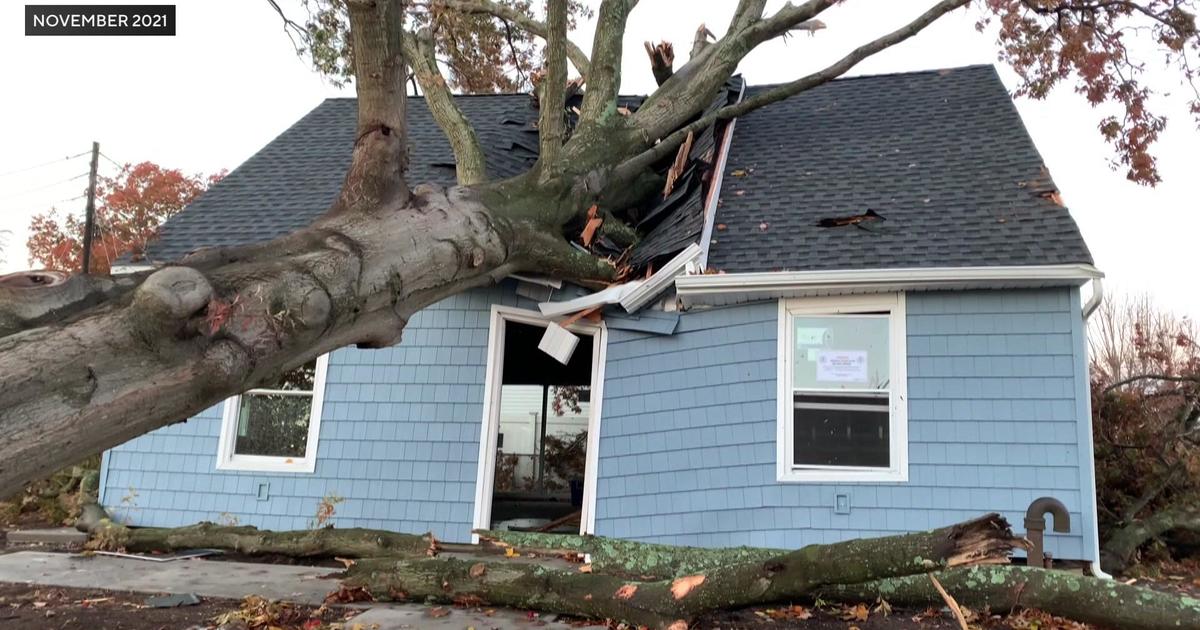World Menopause Awareness Month Shines A Light On Issue That's Often Taboo To Talk About
NEW YORK (CBSNewYork) - October is World Menopause Awareness Month, a time to focus on education around this issue that's often taboo to talk about.
CBS2's Cindy Hsu introduces us to some women working to shine light on a natural part of life.
"There it was, with the anxiety creeping up, the hot flash. I was so embarrassed and mortified," said Linda Ortiz.
Ortiz, 54, and has suffered from severe symptoms, from lack of concentration and joint pain to a racing heart, that sometimes come with menopause.
"I thought I was dying, I thought that there was something seriously wrong with me," Ortiz said.
She had to see multiple doctors, many having no idea she was suffering from menopausal symptoms.
Dr. Carol Russell is an OB-GYN.
"Some women think that they're losing their mind because these symptoms are very vague," Russell said. "If the symptoms are pronounced enough they may think they're having a heart attack, they may think they're having an anxiety attack. So some women go to the emergency room."
Russell said menopause is going a full year without any menstrual period, and normally happens in your 50s. Leading up to that time is considered perimenopause, and that's usually when women have symptoms which often start in their 40s and even late 30s. It's time to seek treatment when the symptoms are severe and interfere with daily life.
"Not everybody needs hormones. Not everyone needs medication. Some people need exercise. Some people need yoga. Some people need therapy," Russell said.
You can find lots of products, from hot flash tea to oils and sprays to help deal with symptoms. Telehealth websites like Gennev connect women to doctors and health coaches who are menopause experts.
"It's a big transition, and the more that we can support one another and know that you're not the only one going through it is very critical to the care," said Jill Angelo of Gennev.
Angelo says workplace managers need more training and education.
"Oftentimes, managers - male or female - might not understand how can they better support female employees in their post-reproductive health, in terms of coming in late, or special accommodations to work from home, which is now somewhat becoming the norm. Or even accommodations in terms of access to cool water, ice, fans, et cetera," Angelo said.
Lorrie King and Celeste Lee are in their mid-50s.
"A lot of women actually develop a lot of fear that they're going to be pushed out," Lee said. "That's one of the reasons we don't talk about menopause at the workplace. We think 'Oh my god, if I talk about menopause, people are going to know how old I am."
They both left careers in beauty and pivoted to create Caire, a skincare line for women over 40.
"We're about pro-aging. We're about embracing this period of our lives," King said. "It shouldn't be looked at as 'Oh my God, there's granny coming down the street' because you've got a grey hair. Forget that. We're all living a vibrant life and we're going to live it for many years to come."
Some people think there are just a few menopause symptoms such as hot flashes and night sweats, but there are actually more than 30 symptoms, and the more we talk about them the more likely women will get the help they may need.



